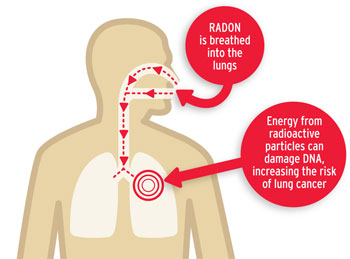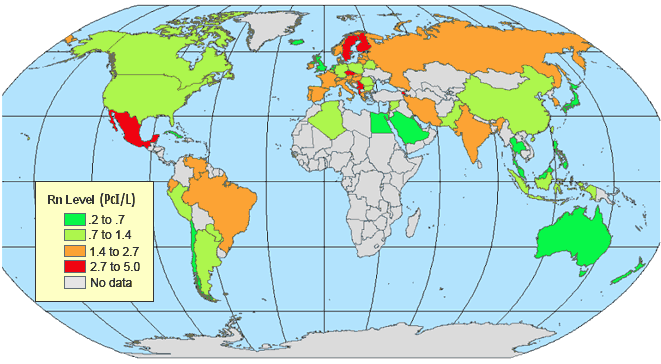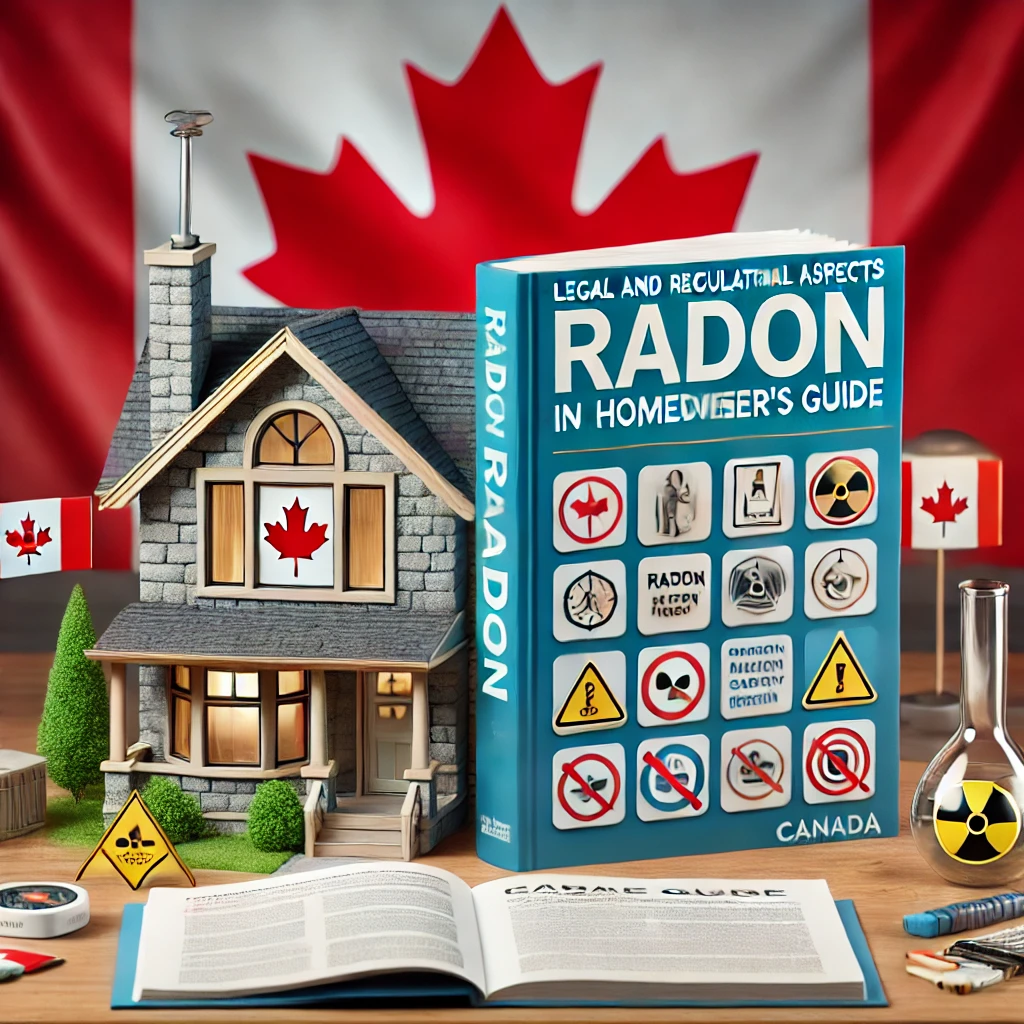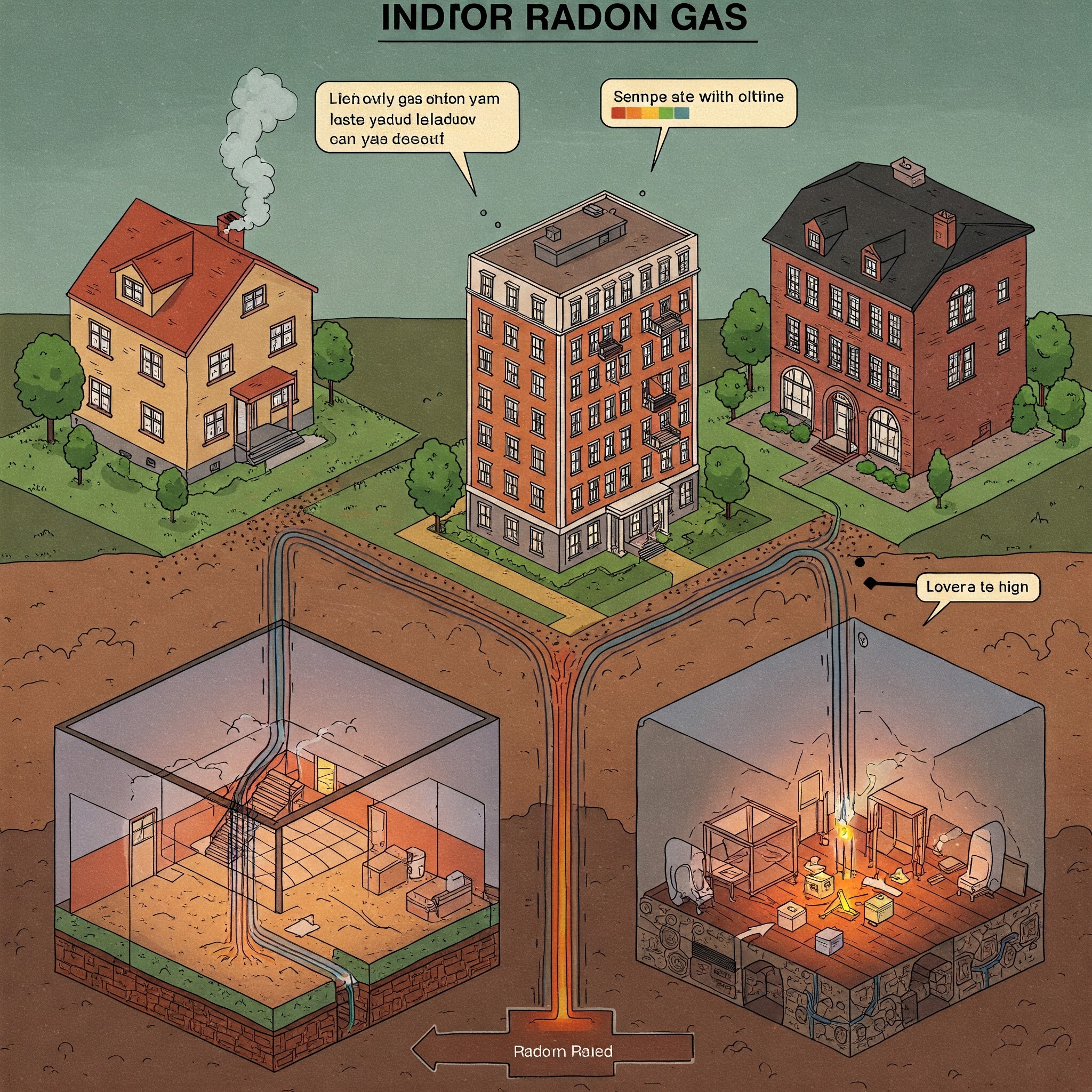
Radon And How It Can Affect Your Health
What is Radon? Radon is an odorless , colorless and tasteless radioactive gas that emanates from rocks and soils it means that Radon escapes from


What is Radon? Radon is an odorless , colorless and tasteless radioactive gas that emanates from rocks and soils it means that Radon escapes from

For a given radon potential in the ground and a given building, the parameters affecting the indoor radon activity concentration (IRnAC) are indoor depressurization of

There are no safe levels of radon, but there is an action level, and you need to be concerned if you have a radon screening

The highest levels of radioactive radon gas in homes and other buildings occur during the winter months. This is because windows are normally kept closed,

Testing your home is the only way to know if radon levels are high. You and your family could be at risk for lung cancer

Soil Permeability Soil permeability or texture is considered a predictive factor for high radon concentrations. Soils that are sandy or gravely, are more permeable than

In this article, we try to scientifically explain how radon gas can affect the lung and change its tissue. Entry into the Respiratory System: Alpha

Indoor air quality is a global issue. We take up to 30,000 breaths a day. That’s a lot of air we put in and out

The risk of residential radon exposure does indeed vary geographically due to differences in the underlying geology. Radon is a naturally occurring radioactive gas that

What is Radon? Radon is a colorless, odorless, radioactive gas that forms naturally when uranium in soil, rock, and water breaks down. It can seep

Radon is a naturally occurring radioactive gas that can seep into homes and buildings through cracks in foundations and other openings. In Canada, it is

What Is Radon Gas? Radon is a naturally occurring radioactive gas that results from the decay of uranium in soil and rock. It is colorless,

Radon is a naturally occurring radioactive gas that is colorless, odorless, and tasteless. It is produced from the decay of uranium found in soil, rock,

Radon gas is a silent, invisible threat that can accumulate inside homes and buildings without any obvious warning signs. Many homeowners are unaware of its